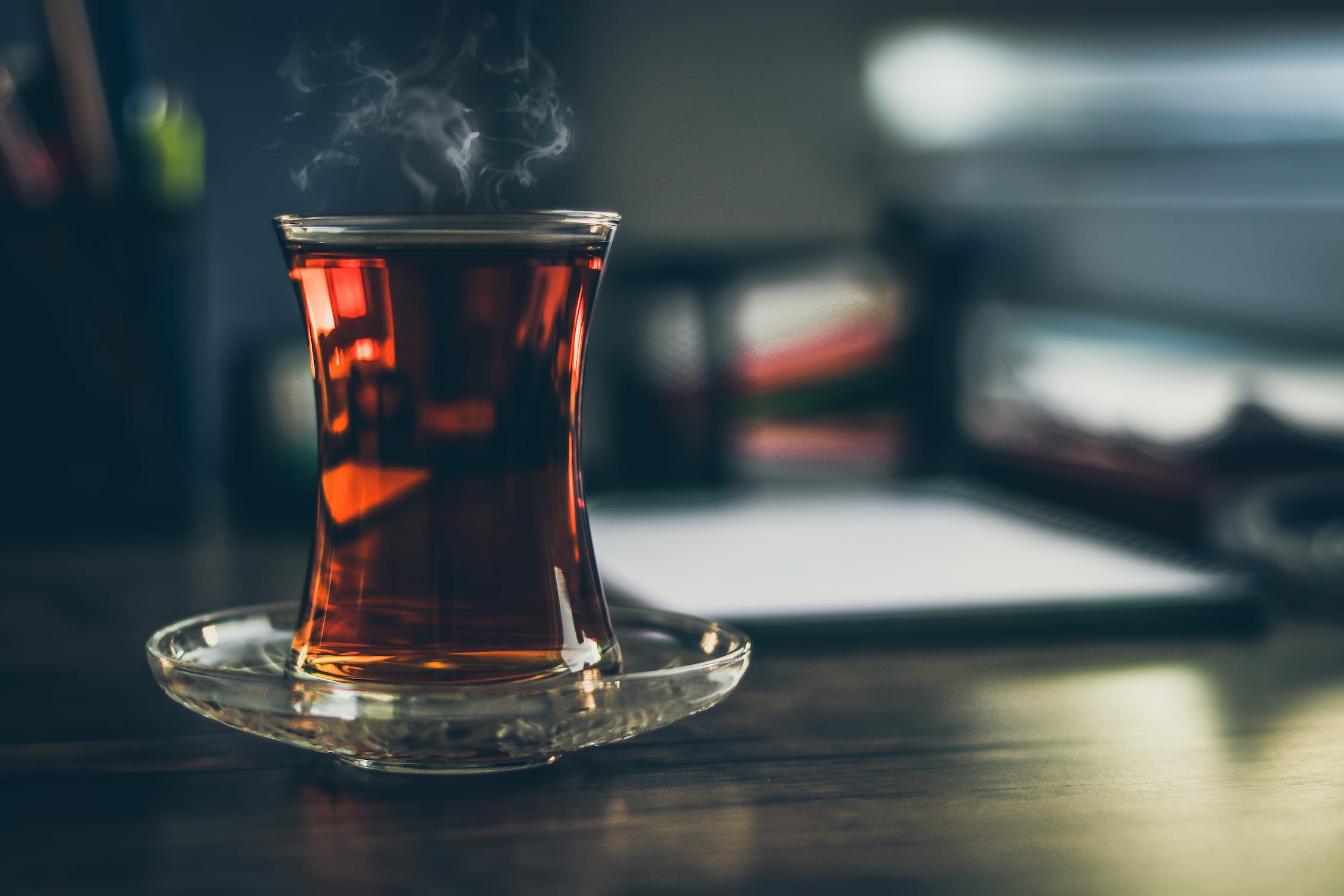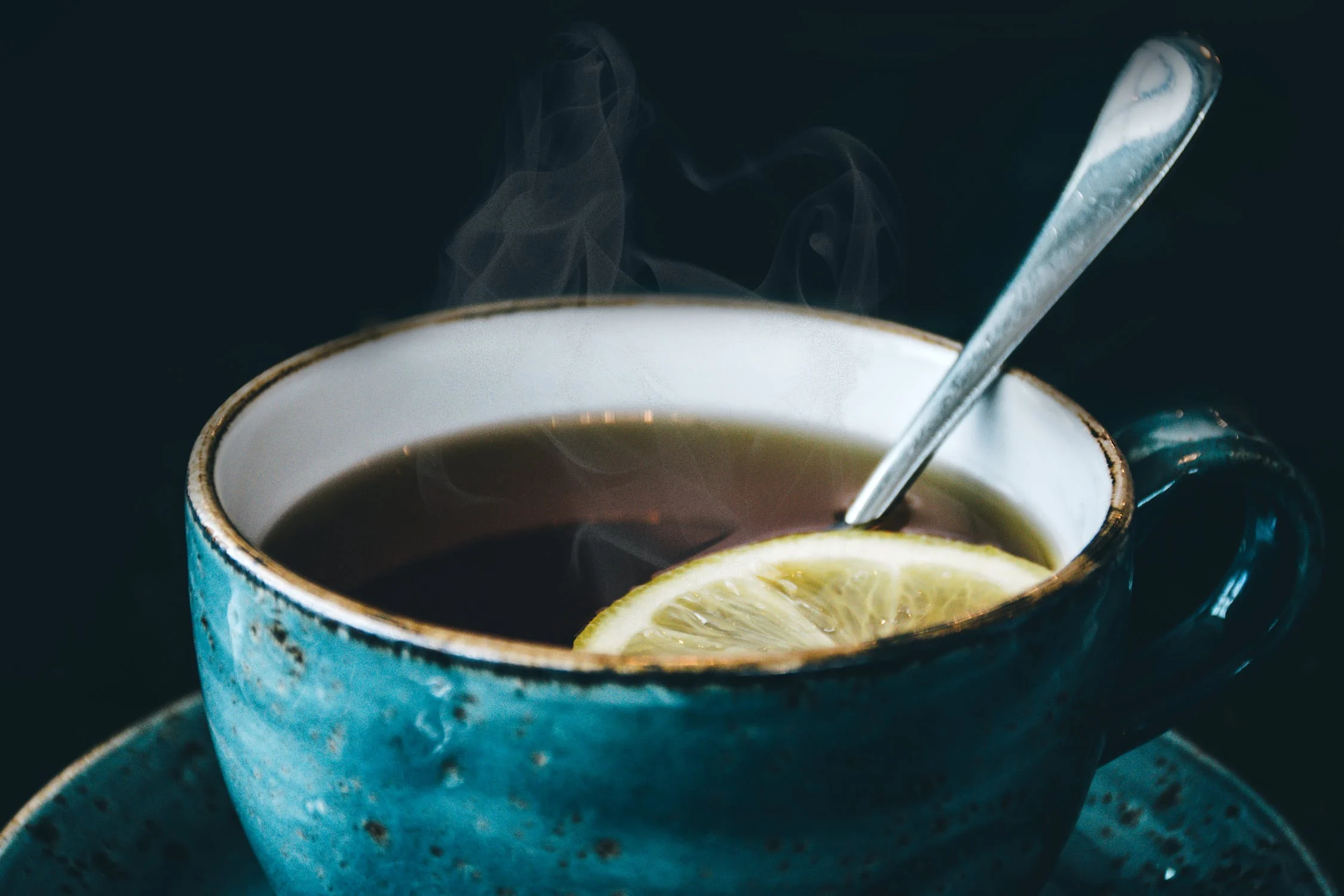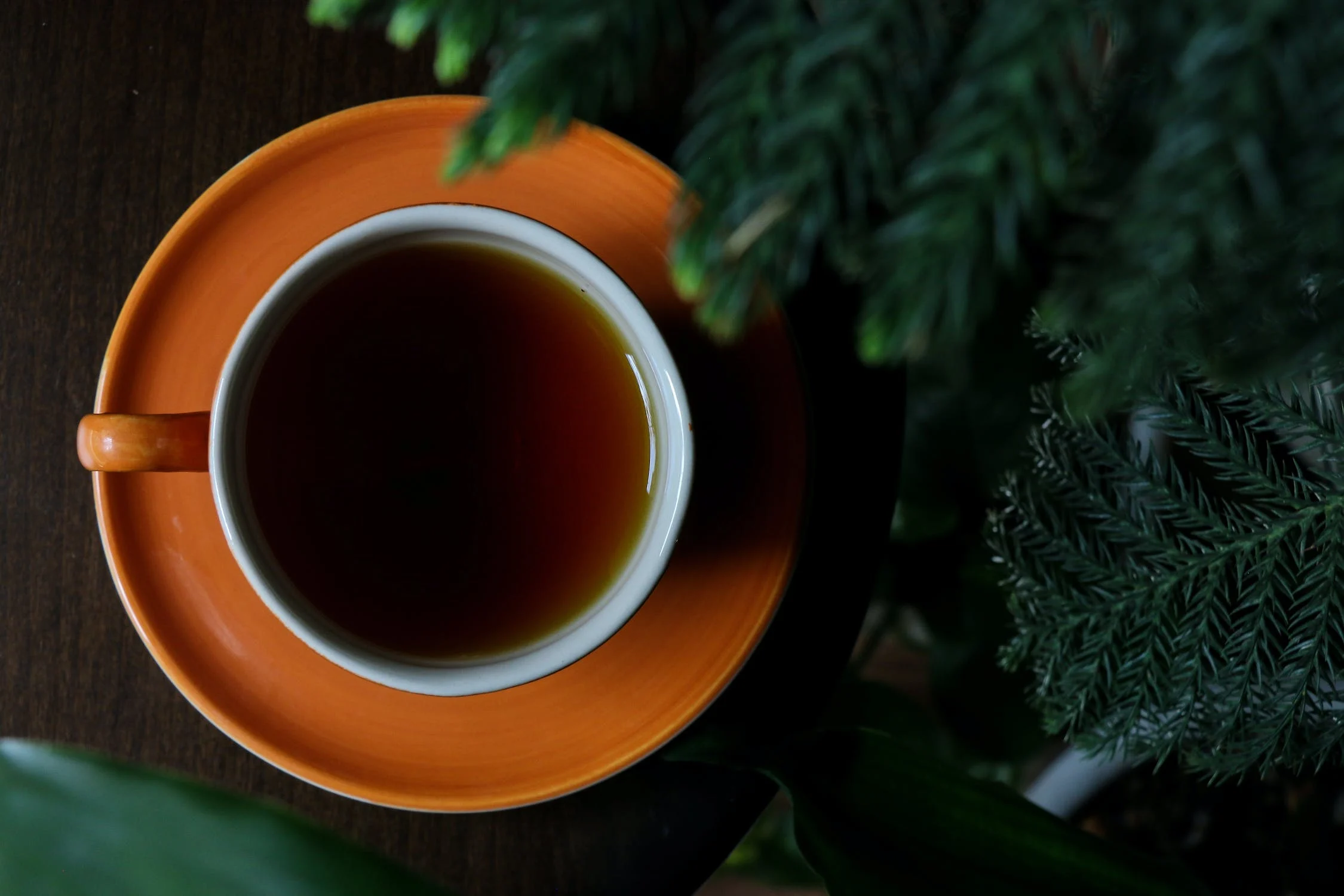Drinking Black Tea: The Powerful Black Tea Extract

Did you know that black tea is one of the most consumed beverages in the world? Aside from water, that is. This quintessential cup of black tea is from the Camellia sinensis plant and is often blended with other plants for different flavors, like Earl Grey or chai.
As such, it contains a rich and robust black tea blend that is the perfect way to shake off the negative vibes, throw back the curtains, and start your day as wonderfully as possible. In addition, it is stronger in terms of flavor and has more caffeine than other teas but less caffeine than coffee.
Apart from its flavorful delight, it is rich in antioxidants that may provide benefits, including improved heart and gut health and lowered "bad" LDL cholesterol, blood pressure, and blood sugar levels.
To reiterate, just like green tea, black tea offers various health benefits because it contains antioxidants and compounds that may help reduce inflammation. Black tea is so healthy that it is sometimes sold as an herbal supplement, including other herbs, vitamins, or minerals.
In the United States, people drink it either hot or cold. Per the expert's advice, it should always be steeped in hot water before it is cooled. This induces oxidation, which transforms the leaves from green to dark brownish-black. Consequently, it means the leaves are exposed to moist, oxygen-rich air.
Depending on the tea manufacturer, the amount of oxidation may vary. However, one thing's certain: black tea is fully oxidized, whereas green tea comes from the same plant but is not oxidized.
Not convinced just yet if you should start drinking black tea? Then, keep on reading. In this article, we will talk about black tea, its origin, and its types. More importantly, we will talk about its health benefits and the various side effects that may occur during black tea consumption.
All About Black Tea

Black tea extract is delivered by oxidizing the leaf of the plant Camellia sinensis. The name 'black tea' can be ascribed to the shade of the tea itself.
However, if you look closely, the color is dull, amber, or orange. This is also why Chinese drinkers alluded to it as red tea. The strategy for creating black tea makes it unique, unlike other tea assortments, like green and oolong tea.
Registered Dietitian Bill Bradley said, "The contrast between dark tea and customary tea is that the previous tastes are more grounded given a complicated oxidation process. Dark tea additionally contains caffeine. As it contains caffeine, it doesn't advance unwinding," he stated.
After being culled, the tea leaves are wilted to release the dampness. When they lose the most dampness, they are rolled, either physically or with the assistance of machines, and exposed to high temperatures.
When the leaves are completely oxidized, they are arranged according to size. Tea's caffeine content is often a cause for concern. Considering everything, one cup of tea contains about a portion of the caffeine found in espresso.
The Origin of Black Tea
In simple terms, black tea was introduced to China in 1590, around the late Ming and early Qing Dynasties. Before this, the Chinese drank green or oolong tea.
Rumors suggest that military men passing through the Fujian territory took cover in a tea manufacturing plant, which had halted the production of green or oolong tea. In the meantime, the tea leaves dried out in the sun and oxidized.
When the military men left, the production line continued making tea, yet the shade of the tea was red or dark and tasted seriously rejuvenating and aromatic.
This resulted in the first black tea, known as Lapsang Souchong. "Lapsang signifies the high mountains, and "Souchong" signifies the little leaves of the tea tree. Consequently, the English and Dutch brokers coined the term "black tea."
In 1610, the Dutch brought black tea to Europe, and in 1658, it entered Britain's premises. As black tea became prominent, the English developed it in three major locations: Darjeeling, Assam, and India.
The Different Types of Black Tea
Various black teas are grown in China and India. We will now examine the various kinds of dark tea.
Any kind of tea can be made into black tea, including green, yellow, white, or oolong tea. The main distinction is how black tea is handled.
While a wide variety of black tea is produced in China from the Camellia sinensis plant, black tea in India is made from a different variety known as Camellia assamica.
In addition, black tea from Camellia assamica tastes more grounded and has bigger leaves than that from the Camellia sinensis variation.
To give you an idea, here is a rundown of the different kinds of black tea that you should know:
Black Tea List According To The Production Region
-
Lapsang Souchong
-
Fujian Minhong
-
Anhui Keemun
-
Yunnan Dianhong
-
Darjeeling Black Tea
-
Assam Black Tea
-
Ceylon Black Tea
-
Nilgiri Black Tea
-
Kenyan Black Tea
Black Tea List According To Popular Blends
-
Earl Grey Black Tea
-
English Breakfast
-
Irish Breakfast
-
Chai Tea
-
Afternoon Tea
-
Rose Black Tea
-
Russian Caravan
The Benefits of Black Tea: Health Benefits of Drinking Tea

Needless to say, black tea has many health benefits. Overall, it promotes heart health, treats diarrhea and other stomach-related issues, manages blood pressure, and lowers the risk of Type 2 diabetes.
Pro Tip: To maximize its benefits, you should consume it without additives like milk or sugar.
1. It promotes a healthy heart.
The so-called flavones that are present in black tea can advance heart health. Researchers have affirmed that drinking at least three cups of black tea daily can decrease coronary heart disease risk. Besides, black tea is likewise connected with a decreased risk of myocardial localized necrosis, ischemia, and cardiovascular mortality.
2. It can lower the risk of Ovarian Cancer.
Another component in black tea is theaflavins, which can restrain the expansion of ovarian malignant growth cells. In a review led by the Roswell Park Cancer Institute, USA specialists, a 30% decrease in ovarian disease risk was seen in patients who drank multiple cups of dark tea daily.
3. It can lower the risk of Diabetes
Researchers have found that drinking tea might help lower the risk of Type 2 diabetes. Black tea contains catechins and theaflavins, which have anti-diabetic properties. Moreover, this healthy drink can help make the body more insulin-sensitive and prevent beta cell dysfunction. As we all know, beta cells help regulate blood glucose levels.
4. It can help boost the immune system.
Black tea is rich in antioxidants that assist with rummaging free radicals. More often than not, these free radicals will transform DNA and hamper normal cell capability. This can prompt irritation and drive the body into a condition of stress. With this, black tea helps flush out oxygen radicals. Furthermore, it helps restore typical cell and body functions and boost the immune system.
5. It may help lower blood pressure levels.
Consuming black tea can help reduce blood pressure. Researchers from the Netherlands, Germany, the UK, and Italy led a trial in which a group was given black tea for a week and checked their systolic and diastolic tension readings. Toward the end of this experiment, members who consumed black tea had lower blood pressure levels than the control group.
6. It can improve mental sharpness.
Scientists from the Netherlands found that participants in the black tea study had the most grounded capacity to focus and better auditory and visual ability. As general knowledge, teas contain l-theanine that modulates cerebrum capabilities and the human attention process. The caffeine in black tea may likewise improve sharpness.
7. It can strengthen bone health.
As you age, the strength of your bones begins to decline. In any case, researchers have seen that individuals who drink black tea can essentially restore bone thickness or density. Hence, drinking black tea may decrease the risk of fractures that most normally happen in the old because of osteoporosis.
In a research study, rats that were given black tea were found to have better bone density (13). Subsequently, when you turn 30 years old, making black tea a piece of your eating regimen can help safeguard bone thickness and forestall osteoporosis and the risk of bone fractures. Drinking tea, as a rule, was likewise found to decrease hip crack incidents.
8. It may lessen Parkinson's Risk.
Parkinson's is a neurodegenerative illness that, for the most part, affects older people. The research proposes that black tea polyphenols' neuroprotective effect on the mind. A review was conducted at the National University of Singapore, where researchers observed that the caffeine in black tea was conversely connected with Parkinson's disease.
9. It can improve digestive health.
A healthy stomach can protect you from different illnesses and diseases. For one, consuming black tea can aid with improving the count and assortment of good stomach microorganisms.
Tea polyphenols may also act as prebiotics, feeding the great stomach microbes and forestalling the development of other harmful microorganisms in the stomach.
Furthermore, black tea may help treat stomach ulcers and decrease the risk of colorectal and esophageal/stomach tumors. However, more studies on humans are warranted to be safer.
10. It can lower Cholesterol Levels.
An unhealthy lifestyle and irregular food habits may increase bad cholesterol levels in the blood. High LDL (bad cholesterol) can prompt plaque development in the blood vessel walls, restricting the bloodstream and initiating cardiovascular failure, stroke, and ischemic attacks.
In a research study, black tea was displayed to decrease LDL cholesterol by 11.1 %. Analysts had likewise tracked down that black tea (counting in the Chinese variation) had anti-hypercholesterolemic effects in people who were under the obese category and were, therefore, inclined to coronary illness.
11. It can aid in healthy weight loss.
Weight is the underlying driver of different ailments, for example, diabetes, coronary illness, PCOS, elevated cholesterol, and so on. Like green tea, black tea additionally may aid with weight management whenever consumed and paired with good lifestyle changes.
Researchers from the David Geffen School of Medicine, California, USA, found that black tea diminished visceral fat by reducing inflammation-inducing genes. Since prolonged inflammation in the body can induce obesity, drinking black tea may hypothetically assist with forestalling inflammation-induced obesity. In addition, black tea may likewise bring down triglyceride levels.
12. It may lessen the risk of Kidney Stones.
Kidney stones are very painful. An expanded discharge of crystal-forming substances such as oxalate, calcium, and uric acid from the body causes them. You may think that black tea contains many lower oxalate levels when contrasted with other natural teas —well, you are not wrong.
However, some narrative evidence suggests that black tea might diminish the risk of kidney stones, but there is no adequate research on this topic. If you are considering consuming tea, consult a doctor before making drastic lifestyle changes.
13. It may help relieve asthma symptoms.
Asthma occurs when the airway or bronchial tubes become irritated and expand, making breathing in and out troublesome. Episodic evidence suggests drinking black or green tea might help ease asthma side effects.
Certain experiments have also demonstrated that tea's caffeine could improve lung function. The flavonoids in tea were additionally found to help those with asthma.
14. It can battle free radicals.
Factors like contamination, smoking, and stress produce free oxygen radicals, which are poisonous to the body. Antioxidants, a specific group of compounds, assist with fighting these free radicals. Black tea is stacked with antioxidants, which play a role in this process. Taking dark tea with lemon may likewise help.
15. It may kill microorganisms or bacteria.
Most microorganisms can cause diseases and may likewise prompt infections and death. The antioxidants and other phytonutrients in black tea might have antibacterial properties. Another study expressed that teas (counting black tea) may act against the microbes that cause illnesses and diseases.
The Side Effects of Black Tea

Drinking moderate amounts of black tea is generally safe for adults. However, drinking an excessive amount, such as five (5) cups each day, is a different story.
Due to its caffeine, high amounts of black tea can have secondary effects. These effects can range from gentle to serious and include headache, nervousness, sleep problems, vomiting, diarrhea, irritability, irregular heartbeat, tremors, heartburn, dizziness, ringing in the ears, convulsions, and confusion.
Likewise, individuals who drink black tea or other caffeinated refreshments constantly, particularly in huge sums, can foster mental dependence.
Drinking extremely high measures of black tea containing over 10 grams of caffeine is not so safe. Dosages of black tea this high could cause death or other extreme aftereffects.
Symptoms of black tea (most frequently in high sums) may include:
Faster breathing
Headache
Increased urination
Irregular heartbeat
Nausea and vomiting
Nervousness and restlessness
Ringing in the ears
Tremors
High blood pressure
Anemia
Pairing up black tea with different kinds of caffeine or an item called ephedra can be extremely hazardous. A portion of the issues it can cause include:
Anxiety
Expanded circulatory strain
Pulse changes
Seizures
Dropping
Note: Black tea or any black tea supplements may interfere with your other medicines and supplements. A few medications can make caffeine stay in your body longer than expected. Talk to your primary care physician to see whether any meds you produce may have these results. This is because the caffeine in black tea may likewise obstruct specific blood tests.
Final Thoughts: Is Drinking Black Tea Good or Bad?

Now, let's ask the most important question —is drinking black tea good or bad for your health? Well, the short is yes. Considering you drink black tea in moderation, you don't have any underlying medical issues that may worsen due to the coffee content.
On a side note, use the Berkey water filters to blend your black tea and filtered water to make your daily cup of black tea much healthier. Berkey Water Filters is a pack leader in water filtration, using gravity to feed water through a gamut of "Black Berkey Elements."
Black Berkey® Elements dramatically reduce trihalomethanes, inorganic minerals, heavy metals, pharmaceuticals, pesticides, VOCs, petroleum products, perfluorinated chemicals, rust, silt, sediment, radiological, and more.
If you wish to learn more, contact us at (888) 899-3903 and visit our website, theberkey.com, for more information.
Black tea isn't just a non-sweetened or less-calorie drink yet. In addition, it gives a few medical advantages as it contains strong gatherings of polyphenols, including epigallocatechin gallate, theaflavins, thearubigins, an amino corrosive L-theanine, and a few different catechins or flavonoids which give security against the beginning of a few chronic disorders. With that said, it is a good drink with many health benefits.
← Older Post Newer Post →





